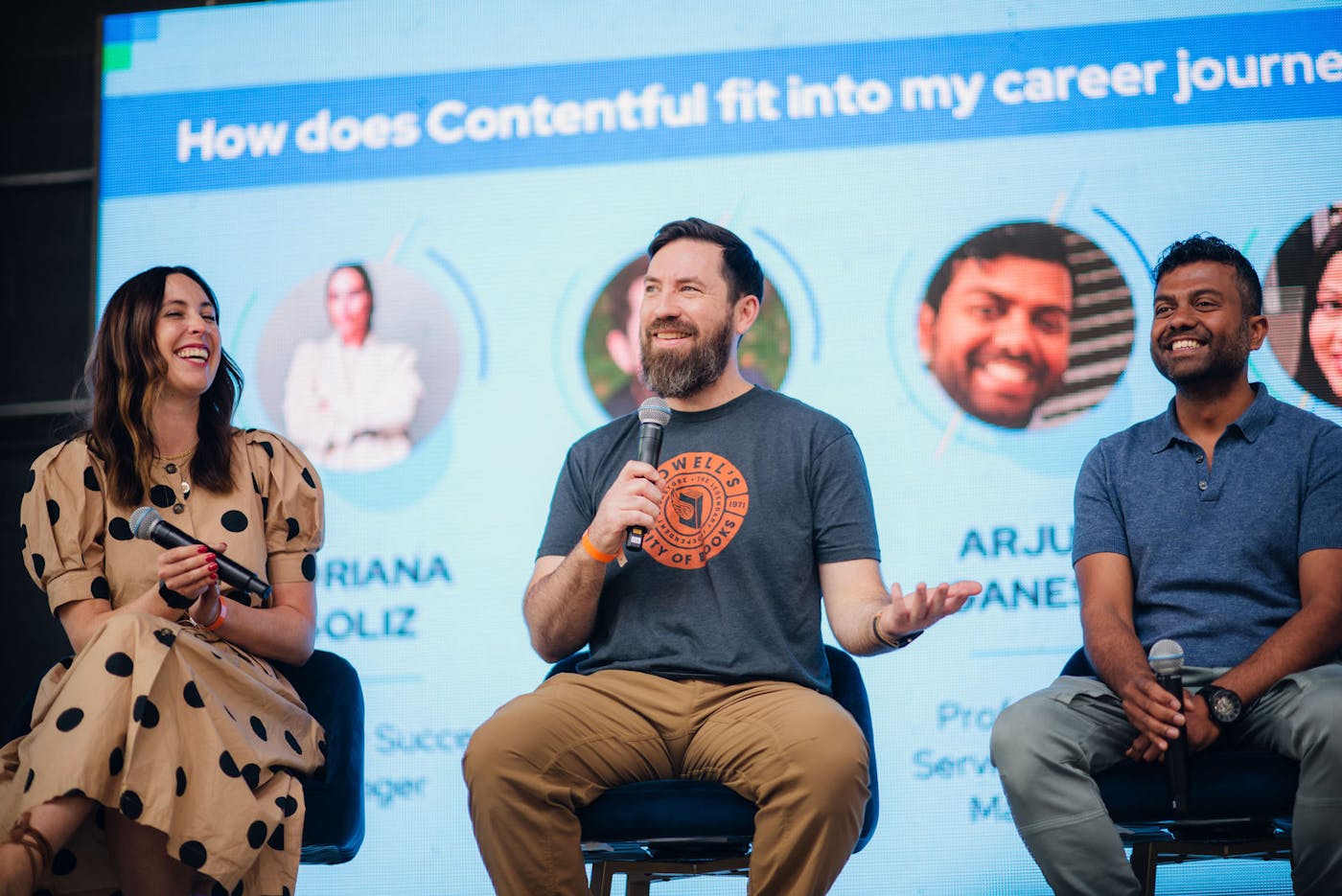Contentful ACSM Denver 2022 Career Panel
At our summer all-hands gathering at Contentful, I was asked to join a career panel and share some insights from my journey. Our Director of People Development Gretchen Gurr interviewed myself and my colleagues Adrianna Soliz, Neha Khawas, Arjun Ganesh, and Tony Le. I learned a great deal from the session and it’s worth a watch.
Has a single question ever changed your life?
Originally, I applied for a role as a trainer here at Contentful. I had been a customer for about 3 years in my previous role, which was ending due to a merger. The recruiter, Alyson Lyle (Boehm) told me that the role was in Berlin, which I couldn’t pursue due to family commitments. She simply said, “Have you thought about sales engineering?” “No, what’s that?” I stupidly replied.
Alyson explained, and sent the job description. Reading through it, I saw much in my skills and experience that fit. I knew the industry and the product well. That one question sent me down this road that I would have never considered. I am thankful that I’ve had a fairly healthy and varied career that has contained many big pivots — including this one at Contentful.
Guiding Career Principles
Your career is in the hands of precisely one person: you. Most companies are not optimized for developing your potential. Consider the job-hopping zeitgeist in tech, where staying beyond two years is rare — in design roles its often 18 months. We’re all hired to do a thing, and that next level or potential role isn’t always aligned with the interests of your manager, team, or organization. So first: own your career.
Taking responsibility for your own growth means it’s ok to tell your boss (and every leader you can) what your interests are and what you want to grow into. Don’t wait for permission. Challenge your managers to prepare you for what’s next. Ask others what they see in you, or what work or responsibilities they think you can grow into.
Relentlessly network across your organization and ecosystem. It helps solve today’s problems and cultivates future opportunities. I’ll admit this was easier when we were a 250-person company! This is something I think is actually easier to do remotely, through Slack and other tools.
Turn setbacks into opportunities. This is a bit embarrassing to realize, but I’ve been laid off or otherwise let go (merger, business collapse, “cultural fit” — we’ve heard that one, right?) from 5 out of 8 of my previous roles! There’s a Ted Lasso joke in here somewhere. But each of these setbacks has preceded a big leap forward in each career I’ve had, that has led me to this moment, with these people.
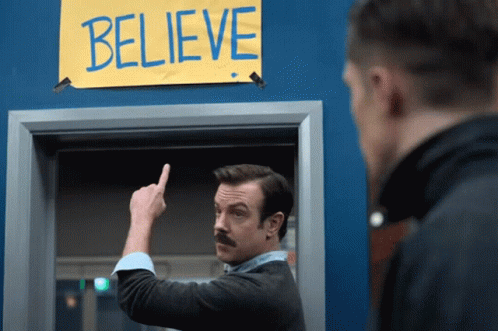
I have a mantra: Always forward. I don’t make lateral moves very often. I make ones that either leap forward into a new direction, or that are a step forward in business value and responsibilities within a given profession.
My Contentful Story
In this clip, I share my own journey on joining Contentful, and touch on some of the themes in this post.
Contentful Denver Gathering
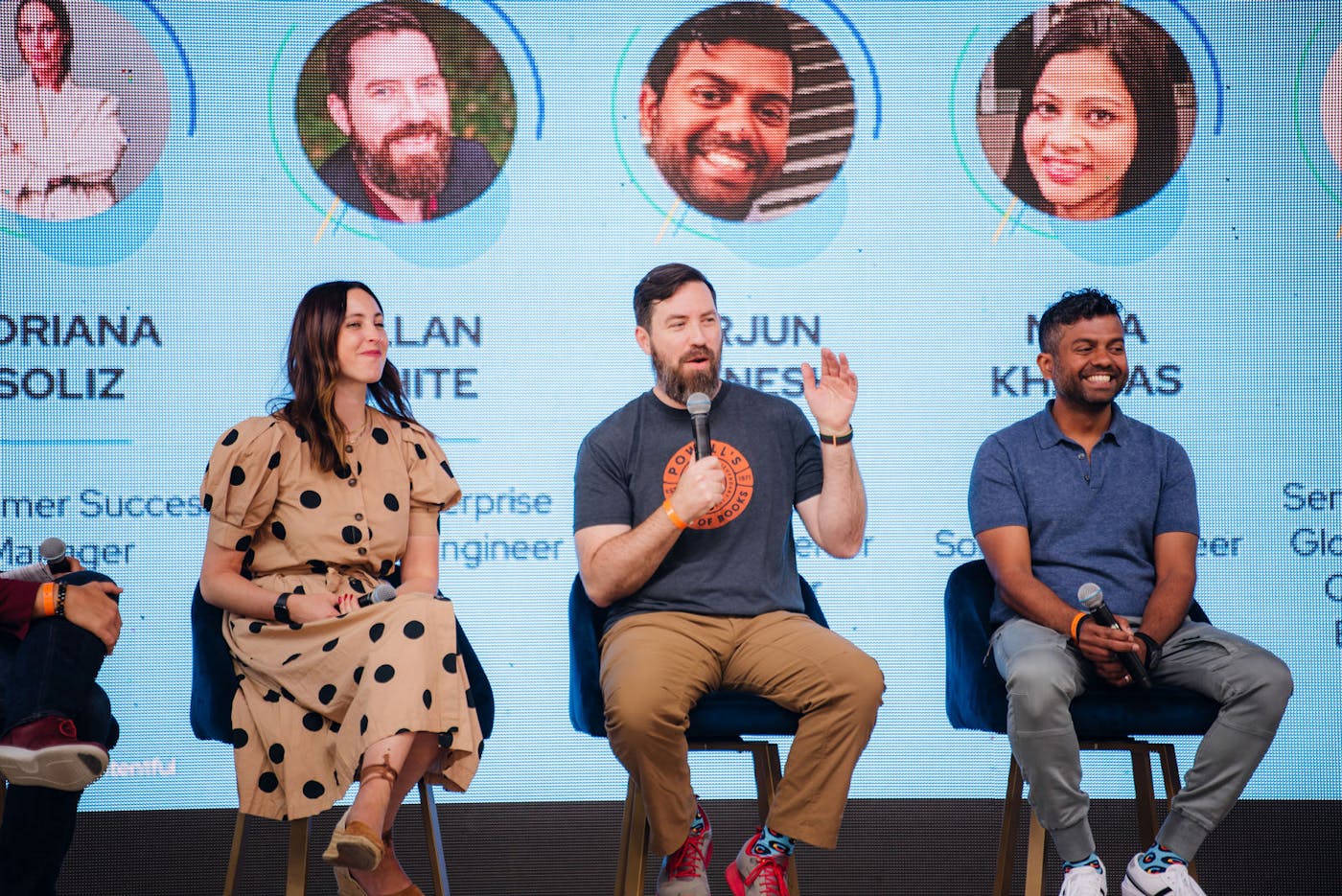
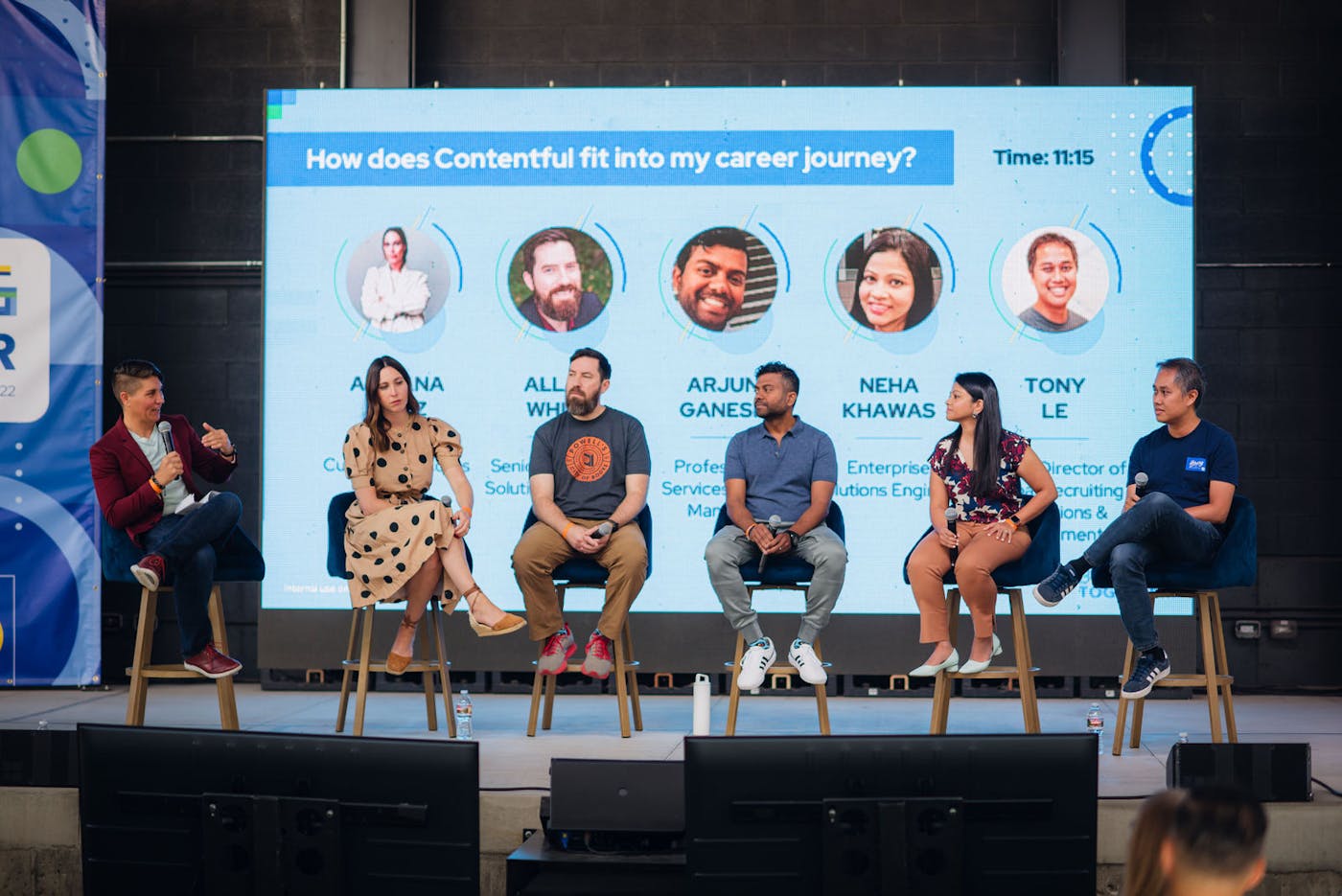

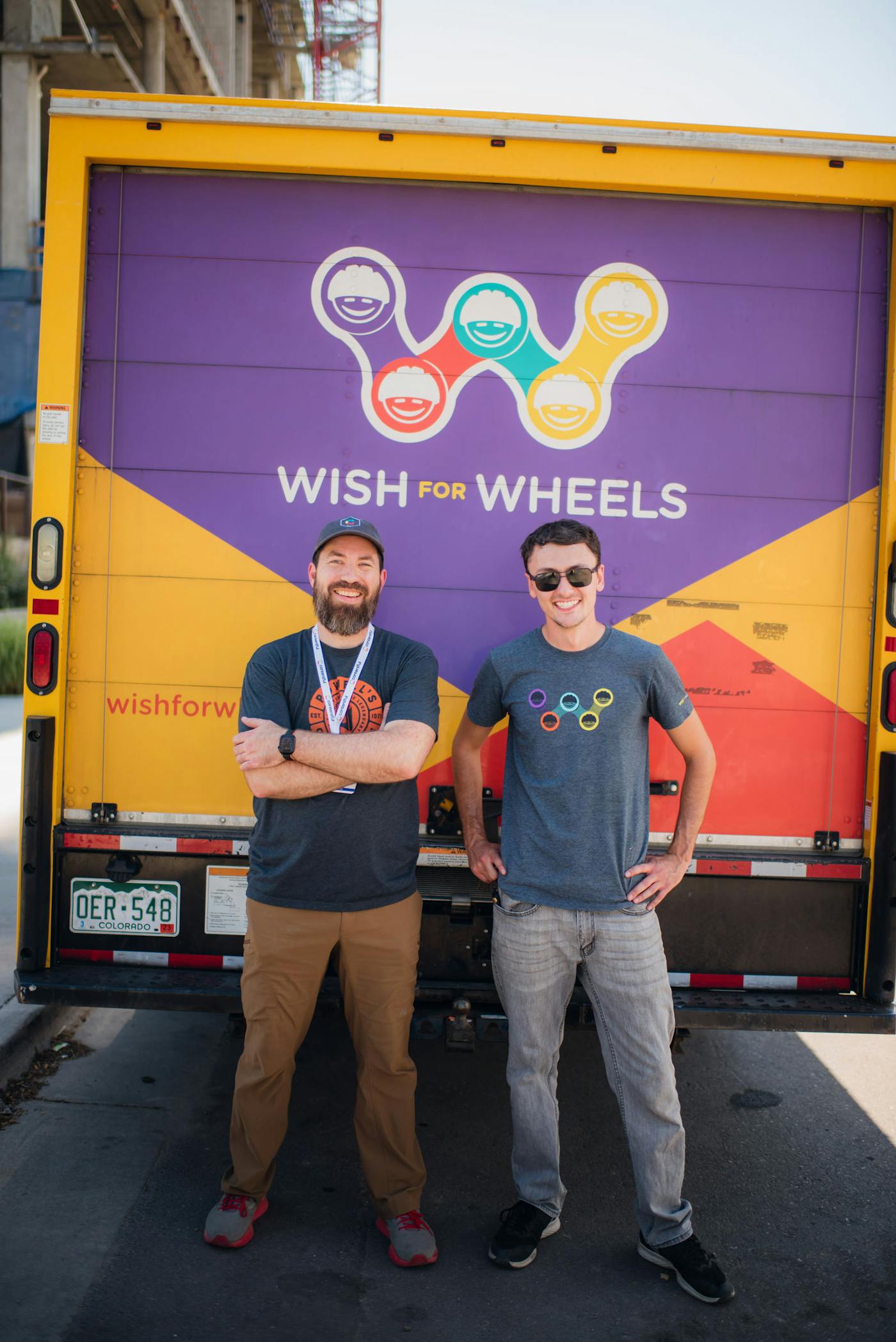
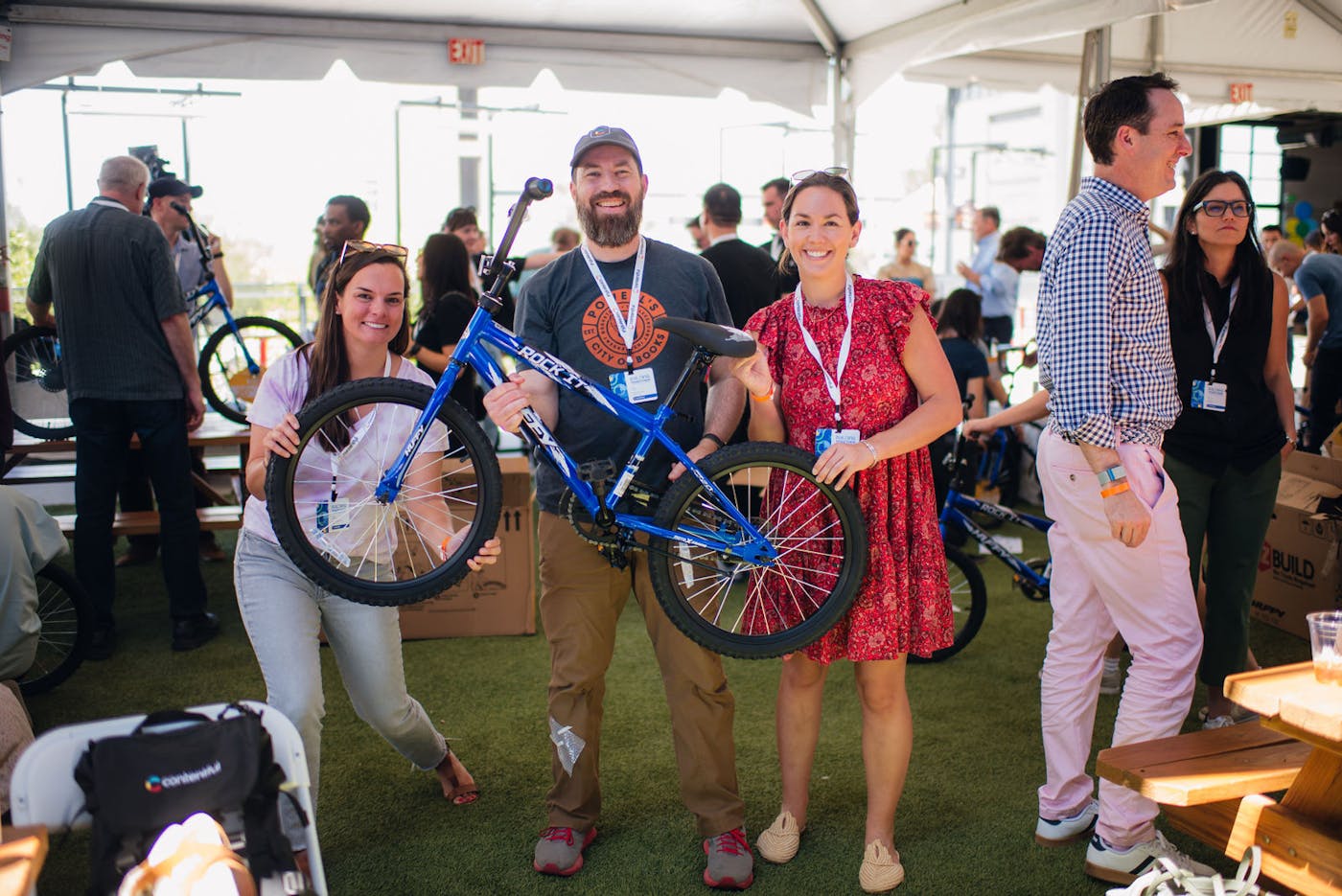
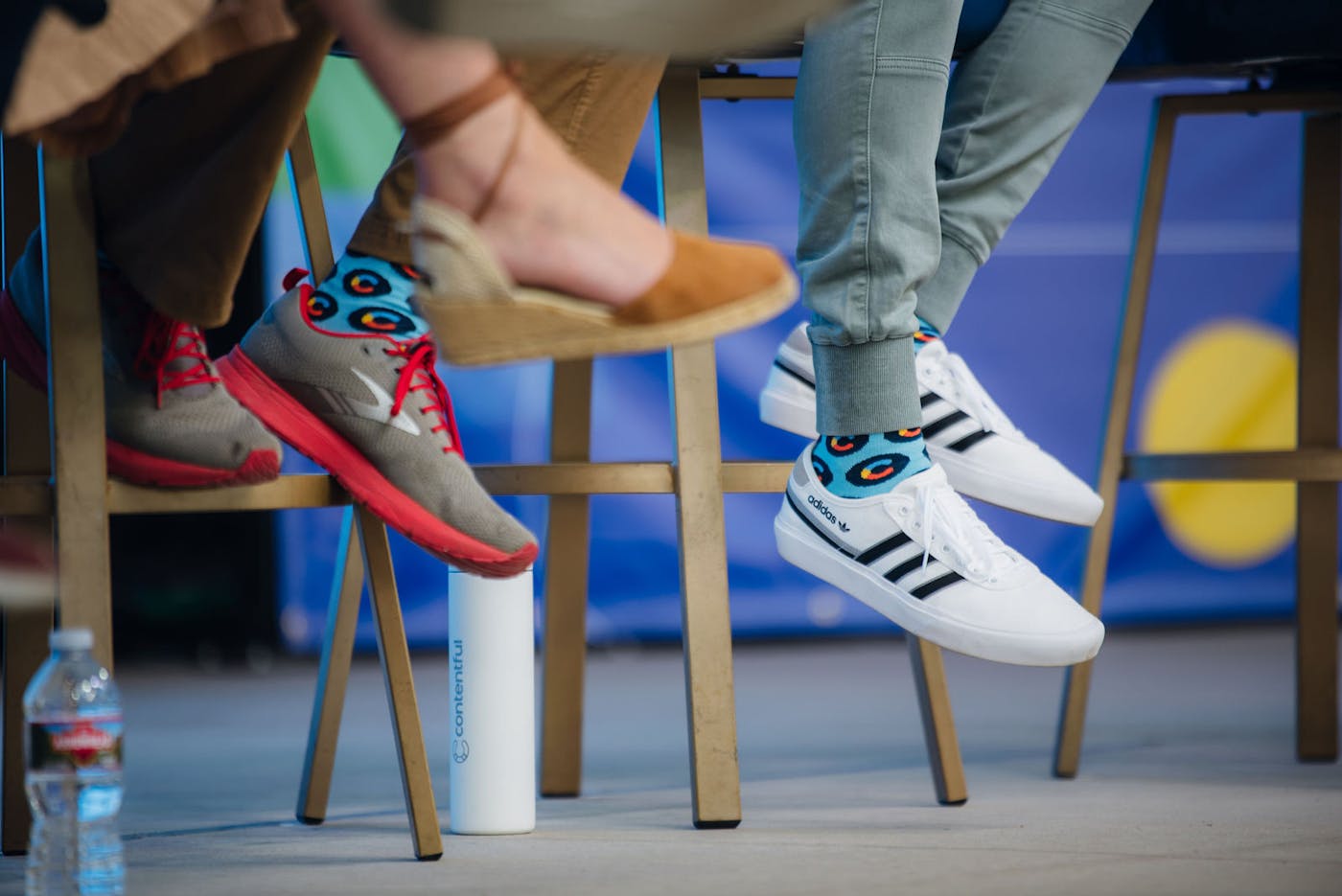
The Ikigai Mentality
Aligning mission, passion, vocation, and profession
Ikigai (生き甲斐, lit. ’a reason for being’) is a Japanese concept referring to something that gives a person a sense of purpose, a reason for being. It’s a concept I’ve been sharing with my kids for years, as a useful framework for aligning interests and one’s work.
When these different areas or parts of yourself align, work can be both satisfying and help you make a living. There are times when only two or three of these spheres may overlap — and that’s okay. A life and a career has many seasons. For seven years, I worked at a nonprofit; purpose, mission, and the thrill of developing new skills kept me there. It was, however, a financial struggle at times. It pushed me to explore more senior roles, and ones that simply paid more.
The frontier I have been exploring in this career season is building networks and influence within a larger organization, which is satifying within itself. Most days, the spheres of Ikigai are lined up — but if I’m honest with myself, the sphere of “purpose” is probably the weakest. That is the trade-off I chose; I need to help 3 kids get through college. I am re-learning how to draw meaning, mission, and purpose from other areas of my life: family, friends, community, mentoring and building up others wherever I can.
I have found Ikigai to be a helpful framework for making decisions when it comes to career choices, but also to help me be honest with myself about what I want and what my family needs in the days ahead. In spite of what our increasingly corporatist society tells us, work is not all there is. You are more than the work you do. If you can line them up, great! If not, make a plan to draw in the sphere that’s missing. It’s also okay to find that fulfillment outside of work (perhaps even better).
Staying current
Information overload is real. We all feel it, and not just at work. There’s much written about managing that; my approach combines work to understand domains, and ways to dive deeply into topics and learn from experts.
RSS was how I used to stay abreast on topics. Twitter and to an increasing degree, LinkedIn have replaced that. But my secret weapon is podcasts. See Listen Notes to curate lists of podcasts around a topic, company, industry, or person. I have had the opportunity to hear customers that I am supporting on podcasts sharing incredibly deep & relevant insights.
The experts in every field imaginable are out there, sharing their wisdom and insights. It’s an incredibly rich and useful medium.
How do you put those insights to work for your career?
- Strive to find the thought leaders in your current space or domain
- Applying those to your current role; get feedback from peers, leaders and customers to find what’s resonate. The good ones can create breakthroughs.
- This habit or discipline can help you uncover related domains and thought leaders in the next frontier of domains, problems, or topics that captivate you.
These habits and insights can carry you into your next role or next company.
My entire career follows this pattern.
Work 🔀 personal interests
Another hack: maintaining a constant interplay between hobbies or interests and work (“day job”). Years of interplay between: Design → interactive media → marketing design → freelance → video → live events → product/UX design → marketing branding and CMS → product marketing and …presales!
Looking to the future
In conclusion, here’s something I shared with the audience in my talk.
“The future — of this company, of this tech space — is simply unwritten. Dad & granddad do not have a playbook for this. Cultivate many interests. Be curious. The future of our business may depend on a new synthesis from fields or needs that we can’t yet see. That means your next role, or one after that, might not exist yet. Which means you have an opportunity to shape it.”
